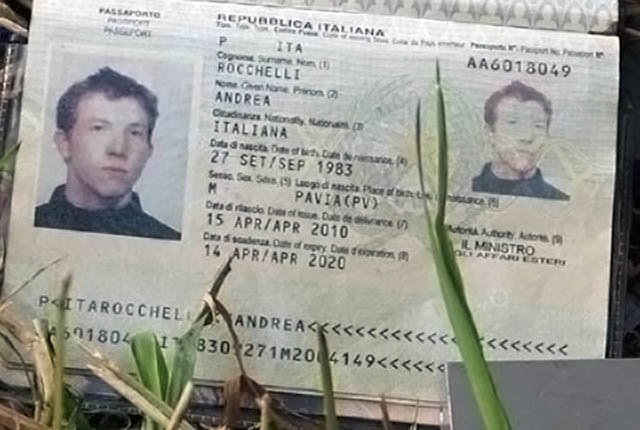
His case recalls that of Giulio Regeni but the story of Andy Rocchelli, who died when war broke out in Ukraine, is in some ways clearer and more straightforward. But once again, the truth seems to be a luxury Italy cannot afford.
It took almost two and a half years to conclude the Ukrainian investigation. The report was sent a few days ago to the Prosecutor’s office in Pavia, Italy. Andy’s parents spoke with Lucia Sgueglia for “L’Espresso” magazine.
The conclusions sent by Ukraine, says Andy’s mother, Elisa Signori, “leave two possibilities open: it is said that the deadly shot could have been fired either by separatists or ‘accidentally’ by Ukrainian positions. With this, without even a clear conclusion, the Ukrainian authorities claim to have closed the case”.
The couple now calls for the Italian government to intervene, calling into question Renzi, and the Minister of Foreign Affairs Gentiloni, because “now there is political interference”.
Again, after Regeni’s parents, we have the parents of another young Italian, who died abroad, seeking truth.
An admission of guilt
In fact, there’s already a truth. The one published by the “Corriere della Sera” on May 25, 2014, just the day after Rocchelli’s death: the direct testimony of a Ukrainian officer who was on duty that fateful day at the TV tower where Ukrainian armed forces were headquartered. There, down a hill where a Ukrainian unit was positioned, Andy was hit along with other colleagues, a Russian and a Frenchman, the latter being injured. It’s almost an admission of guilt. “Usually we don’t shoot in the direction of the city and on civilians, but as soon as we see any movement we load heavy artillery. This is what happened with the car of the two journalists and the interpreter”.
Ilaria Morani, a freelance journalist who in those days was in Donbass sending her reports to the “Corriere”, phoned the officer, with whom she had already had contact in previous days, and asked him what had happened. “His voice was strange, different from the other times. He hung up several times; it seemed as if he had realized that something serious had happened“, Morani told me. The meaning of his words, however, is clear: they fired the mortar. They targeted Andy’s car and fired. He said it bluntly: “This is no joke, no one can approach our position: this is a strategic place for us. From here we can shoot over a kilometer and a half. Here there’s no marked front line”.
But this witness and this evidence went missing.
Andy’s parents confirmed that in Ukraine “not a single soldier was questioned, despite the army having a fixed position not far from the scene of the tragedy”.
And no one has asked Ilaria Morani about that article: neither the Ukrainians, nor the prosecutor in Pavia.
Roguelon’s version
Many things don’t match. Like the fact that the Ukrainian investigators even didn’t question the main witness, Rocchelli’s French colleague, William Roguelon..
He was the first to report the attack and to point at the Ukrainians. That’s what I was told by someone who heard him in person, a few hours after the accident: they were trying to reach the hill when their car was hit by shrapnel from a first mortar round. The three journalists jumped out of the car. Roguelon ran from one side of the road, Andy and his Russian colleague, Andrey Mironov, from the other. They lost sight of each other. The shelling continued. Dozens of mortar rounds were fired for at least half an hour. Eventually one hit Rocchelli and Mironov.
This version is compatible with the story told by the Ukrainian officer. And it is also confirmed by the photos Andy shot during his last minutes, now published for the first time by “L’Espresso”. The last one is timed 14 minutes after the first one. It means that they were under mortar fire for at least 14 minutes from the time they jumped out of the car until the fatal explosion.
Andy’s parents are now demanding that Italy will not leave another of its boys dead without a reason. And we’re with them.
@daniloeliatweet
His case recalls that of Giulio Regeni but the story of Andy Rocchelli, who died when war broke out in Ukraine, is in some ways clearer and more straightforward. But once again, the truth seems to be a luxury Italy cannot afford.






